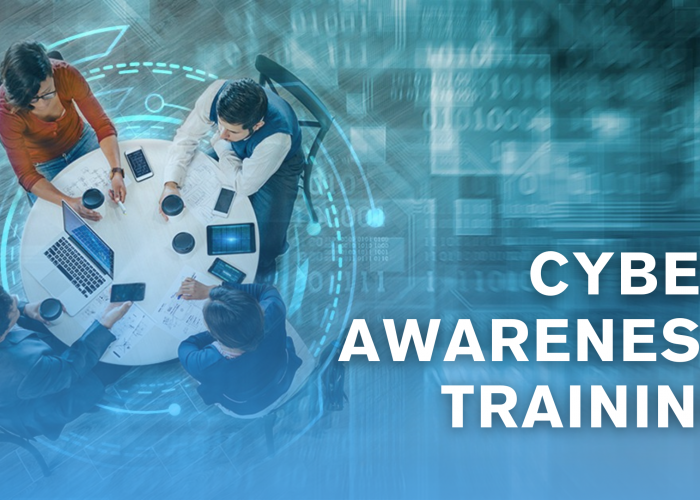In our modern digital age, network security has become increasingly vital for businesses. Cyber threats are prevalent and can cause severe damage to a company’s data and systems. Their types, numbers and sheer quantity of active perpetrators are exceedingly voluminous, which is why a veritable plethora of network security types have erupted in defense against them.
For any business operating today, it is absolutely crucial to protect its sensitive information and assets by implementing various types of network security.
So, to help you get a firmer grasp of the topic (and learn what you can do to avoid becoming another cyber crime statistic) this blog post will discuss 10 main types of network security that businesses should be aware of in 2023.
What is Network Security and Why is it Important for Businesses?
Here’s a quick rundown on the topic network security (and why pretty much every business should be focused on it).
Network security is the process of protecting a computer network from unauthorized access or attacks. It requires taking multiple measures to prevent and identify unauthorized access, misuse, modification, or denial of network resources and data.
The reason network security is critical for businesses is because it safeguards sensitive information and assets, ensures business continuity, complies with regulations, and maintains their reputation.
In other words, it’s the first and last line of defense against a never-ceasing world of cyber crime (which remains the single most lucrative type of crime out there). Because many SMBs often don’t invest in proper network security, they are often the most maligned by cyber attackers.
The 10 Major Types of Network Security in 2023 and How to Implement Them
Is your head swimming yet? Not to worry, we’ve broken down the top 10 different types of network security for 2023 that you should be aware of, and also included handy tips on how to implement them effectively.
1. Firewall
A firewall is a very important security device that filters incoming and outgoing network traffic based on predetermined security rules (and you’ve probably heard of it before, too). Essentially, it helps protect a network from unauthorized access and malicious attacks (if you imagine a literal wall of fire in a digital space, you’re not too far off the idea of it).
To implement a firewall for your company, hiring an expert managed IT services provider is your best bet. However, businesses can use either a hardware firewall appliance or software-based solutions installed on a computer or server. And as an aside, it is of the utmost importance to configure the firewall to allow only authorized traffic and block unnecessary traffic.
Get Protection from Expensive Cyber Attacks Today!
Inquire About our Managed Cybersecurity Services
Learn More
2. Intrusion Detection and Prevention System (IDPS)
An IDPS is a type of security technology that monitors network traffic for suspicious behavior or signs of an attack. It’s extraordinarily adept at detecting and preventing unauthorized access, malware, and other threats.
Businesses can use a software-based solution or a network appliance to implement an IDPS. It should be configured to analyze network traffic and alert the security team in case of suspicious activity.
3. Virtual Private Network (VPN)
Moving onto one of the most effective types of network security, a VPN is a secure connection between two or more devices over a public network. It allows businesses to create a private and encrypted connection between their network and remote devices.
The best way to implement a VPN is either to use a VPN service provider or set up a VPN server. The VPN should be configured to use strong encryption and authentication methods to ensure secure communication.
It’s also worth mentioning that almost any type of device can use a VPN (including mobile endpoint devices) which is very useful since many employees can access your business’ data on their personal devices.
4. Network Access Control (NAC)
NAC is a type of network security that ensures only authorized devices can access a network. It checks the security posture of a device before granting access and can enforce security policies.
To use this network security type for your business, you can use a software-based solution or a network appliance to implement NAC. Best practices dictate that it should be configured to check the security posture of devices before granting access and enforcing security policies.
Consider hiring a reputable managed IT services provider to implement this for you since it can get rather tricky.
5. Antivirus and Anti-Malware
Antivirus and anti-malware software are essential for protecting a network from viruses, malware, and other malicious software. They can detect and remove malware from infected devices.
To use antivirus software and anti-malware for your business, you can simply install the software on each device or a network appliance. But the effort required doesn’t stop there.
The software should be updated regularly and configured to scan for malware on a regular basis. This type of scanning in network security is essential to preventing data or monetary loss due to a rampant malware infection on your computer systems.
6. Data Loss Prevention (DLP)
DLP is a type of network security technology that prevents sensitive data from leaving a network or organization. In essence, it can monitor and control data flow to prevent data breaches and protect sensitive information (very useful indeed).
And what’s more, implementing data loss prevention solutions is as simple as installing the software on all of your company devices. However, that’s about 10% of what’s required to make DLP continuously effective. The software must be configured to monitor data flow and prevent sensitive data from leaving the network or organization.
Without this last crucial step, it would be like wielding a wooden sword and running headlong into battle against armored knights.
7. Web Security
Web security technologies are very important for protecting a network from web-based threats such as malware, phishing, and other attacks. They can monitor and filter web traffic to prevent malicious activity.
Businesses can use software-based solutions installed on each device or a network appliance to implement web security. It should be configured to block malicious websites and prevent malware downloads.
8. Email Security
Email security technologies are immensely useful for protecting a network from email-based threats such as phishing, malware, and spam. They can monitor and filter email traffic to prevent malicious activity.
To implement email security, businesses can use software-based solutions installed on each device or network appliance. It should be configured to block malicious emails and prevent spam.
Stay informed on the latest emerging trends for cybersecurity and SMBs: |
9. Wireless Security
Wireless security is essential for protecting a network from unauthorized access and malicious attacks through wireless devices such as routers, access points, and mobile devices.
To implement wireless security, businesses can use various types of encryption in network security such as WPA2 or WPA3 to secure wireless networks. It is also imperative to change default usernames and passwords and implement strong authentication methods.
10. Security Information and Event Management (SIEM)
SIEM is a security technology that collects and analyzes security-related data from various sources to detect security incidents and breaches.
To implement SIEM, businesses can use a software-based solution or a network appliance. It should be configured to collect and analyze security-related data from various sources and alert the security team in case of security incidents or breaches.

Choosing iTBlueprint as Your MSP to Implement Different Types of Network Security for Your Business
Implementing any type of network security can be a challenging task for businesses. Therefore, partnering with a managed service provider (MSP) such as iTBlueprint can help ensure that your business is protected from cyber threats.
iTBlueprint offers a range of network security services, including firewall and IDPS implementation, VPN and NAC setup, antivirus and anti-malware installation, DLP and web security implementation, email and wireless security, and SIEM deployment. They can also provide ongoing support and maintenance to ensure that your network security stays up-to-date.
In closing, network security is essential for businesses to protect sensitive information and assets, ensure compliance with regulations, maintain business continuity, and safeguard their reputation.
To ensure your business is properly protected from the ever-evolving world of online threats, contact us today for a free consultation and see how we deliver incredible ROI for all of our clients.





